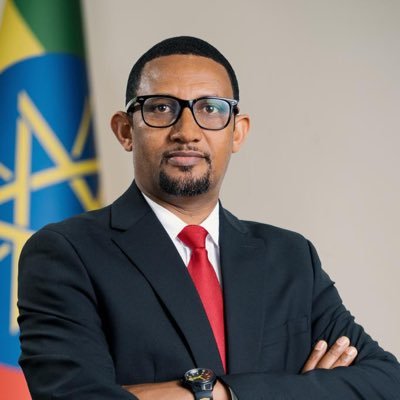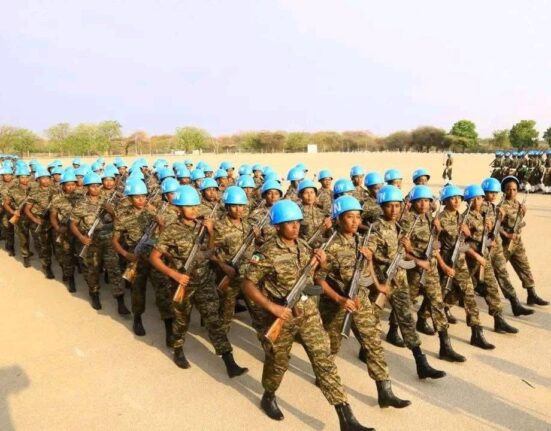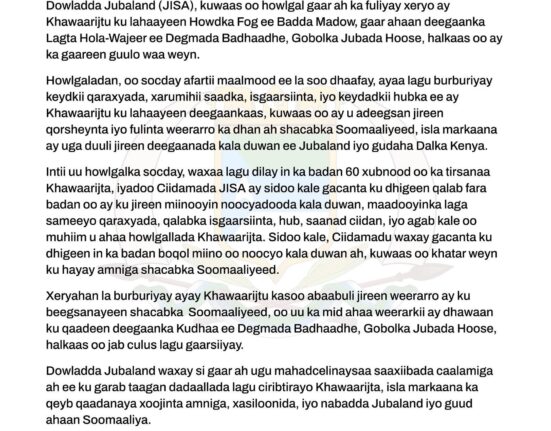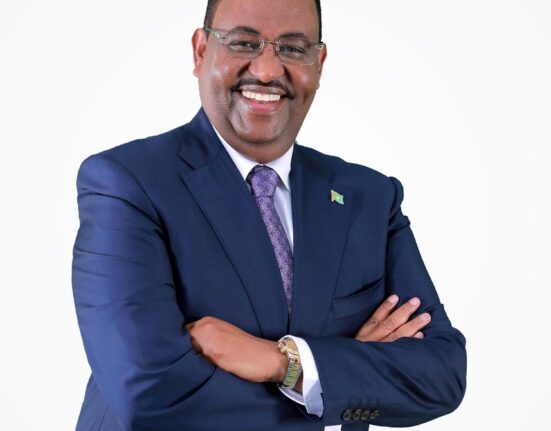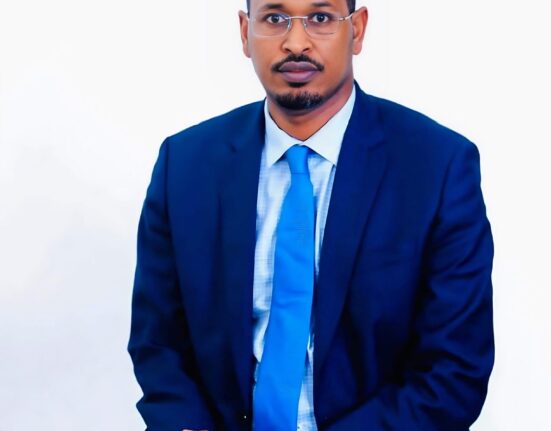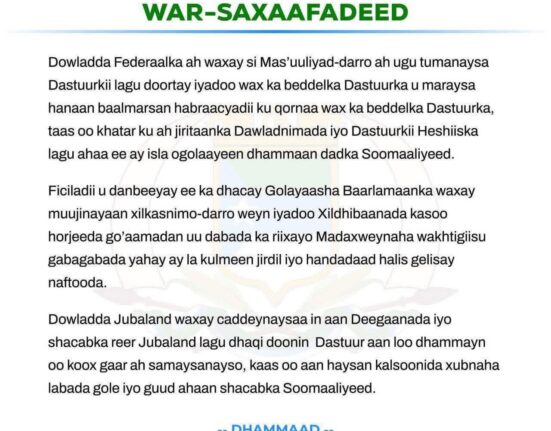The photo taken from the twitter (
Introduction.
Ethiopia’s political landscape is characterized by a profound divide rooted in divergent perceptions of the Ethiopian state and its identity. This political divide mainly manifests in polarized narratives, competing identities, and contending governance models and remains a central challenge, shaping conflicts, policies, and aspirations in Ethiopia. Additionally, elites disagree on the divide’s origins: some view it as a recent product of manipulative politics, while others see it as a historical constant amplified by modern dynamics. I have been engaging on this topic since the 2018 political transition, proposing tools for bridging the divides.
In this piece, I will examine the persisting political divide in Ethiopia through three key dimensions: conflicting narratives (unity vs. diversity), competing identities (citizenship vs. nationality), and contending governance models (unitary vs. federal). Additionally, I will explore debates over the divide’s origins. As Ethiopia undertakes a national dialogue to reconcile tensions and bridge the divides, I argue that addressing the root causes – competing vision of “Ethiopia” and “Ethiopian-ness” is critical for healing the nation.
Conflicting Narratives: Unity versus Diversity
The narrative divide in Ethiopia hinges on two opposing visions: unity and diversity. The unity narrative portrays Ethiopia as a unified nation-state with a shared history, culture, and destiny. Rooted in historical accounts of centralized rule, this perspective emphasizes a cohesive national identity that transcends ethnic or regional differences. Proponents, often invoking symbols like the Ethiopian flag, and long history, argue that unity is Ethiopia’s strength. They also tend to view diversity as a potential source of fragmentation.
Conversely, the diversity narrative frames Ethiopia as a “nation of nations,” a pluralistic entity comprising distinct ethnic groups, languages, and cultures. This perspective, shaped by the struggles of marginalized groups against historical centralization, celebrates Ethiopia’s diversity as its core identity. Advocates argue that institutionalizing diversity through federalism ensures justice and equality. They critique the unity narrative as assimilationist, accusing it for historic marginalization of ethnic groups.
These narratives drive political polarization. Unity advocates often label diversity proponents as divisive, while diversity advocates view unity narratives as oppressive. This division has fuelled tensions, political violence, and competing historical interpretations, underscoring the need for a reconciled narrative that integrates unity and diversity.
Competing Identities: Citizenship versus Nationality
Closely tied to the narrative divide is the tension between citizenship and nationality. For unity proponents, Ethiopia is a nation-state where citizenship and nationality converge. Being “Ethiopian” is a singular identity that supersedes other affiliations. Historically, this view was reinforced through policies like Amharic as the national language and centralized governance, aimed at forging a homogenous national identity.
This perspective aligns with the unity narrative, prioritizing a universal Ethiopian identity.
In contrast, the “nation of nations” perspective distinguishes citizenship (legal status as an Ethiopian) from nationality (membership in an ethnic group, e.g., Oromo, Amhara, Tigrayan). Aligned with the diversity narrative, this view recognizes ethnic identities, arguing that suppressing them breeds alienation.
The 1995 Constitution formalized this distinction by granting ethnic groups rights to self-determination, including language, culture, and regional autonomy.
This identity divide has also significant consequences for Ethiopia. Unity advocates argue that emphasizing ethnic nationality fosters “tribalism,” undermining national cohesion. Diversity proponents counter that denying ethnic identities perpetuates historical injustices, fueling grievances. Reconciling citizenship, a legal identity with nationality, a cultural identity, requires a framework that respects ethnic diversity while fostering a shared civic identity.
Contending Governance Models: Unitary State versus Federal State.
The narrative and identity divides culminate in a governance debate: unitary versus federal state. Unitarists, aligned with the unity narrative and singular identity, advocate for a centralized governance model. They argue that a unitary state ensures national integration, efficient administration, and equal citizenship. Drawing on Ethiopia’s historical experience under imperial and Derg regimes, unitarists view federalism as divisive, blaming it for ethnic conflicts and weakened state authority. They propose a strong central government to consolidate sovereignty and promote a unified identity.
Federalists, aligned with the diversity narrative and dual identity, defend Ethiopia’s federal system, established under the 1995 Constitution. They argue that federalism accommodates Ethiopia’s pluralism by granting nations self-rule while maintaining shared governance at the federal level. Federalists contend that unitarism risks reviving historical centralization, which historically marginalized ethnic groups.
However, critics highlight federalism’s challenges, including ethnic-based conflicts, unequal regional capacities, and secessionist pressures.
Ethiopia’s political crises partially stem from a governance divide. True federalism, a covenant balancing central authority with regional autonomy, is vital for stability and inclusivity in Ethiopia. Elites must uphold this principle, as wavering between centralization and federalism fuels tensions.
The Origins of the Divide: Recent Manipulation or Historical Legacy?
Elites disagree on when and why this great political divide emerged. One group of elites attributes the great political divide in Ethiopia to recent political manipulation by self-serving elites who, since the 1990s, politicized ethnicity and ethnicized politics and territory. This view, often held by unity advocates, argues that the Ethiopian People’s Revolutionary Democratic Front (EPRDF) regime’s ethnic federalism deliberately amplified ethnic identities for political gain, fostering division. Digital media and recent political openings, particularly post-2018, are seen as amplifying these tensions, enabling elites to mobilize ethnic grievances for power and wealth.
The opposing group, often held by diversity proponents, traces the divide to historical Ethiopian state formation. They argue that the state’s centralization under emperors and the Derg marginalized ethnic groups, sowing seeds of ethnic discontent. The divide, in this view, is as old as Ethiopia’s modern state, with historical grievances over language, culture, and power distribution shaping contemporary tensions. Recent developments, including digital media and political liberalization, merely exposed and amplified these longstanding historical divides.
Both perspectives hold merit.
The EPRDF’s federal experiment and elite mobilization have sharpened ethnic identities, while historical centralization laid the groundwork for grievances. Understanding the divide’s dual origins, historical and contemporary, is therefore crucial for addressing its root causes.
The National Dialogue: A Path to Bridging the Great Political Divides in Ethiopia
Ethiopia’s national dialogue, launched in 2022, offers a unique historic opportunity to bridge the political divides in Ethiopia. By fostering inclusive discussions, the dialogue aims to reconcile conflicting narratives, harmonize competing identities, and forge consensus on governance model.
The success of Ethiopia’s national dialogue depends on several factors:
1. Inclusivity: Inclusivity is the maker and breaker of national dialogue. This means the dialogue must represent all stakeholders to avoid elite capture.
2. Historical Reckoning: National dialogue must address historical grievances, such as marginalization and state violence and build trust among all stakeholders.
3. Balanced Vision: The dialogue should craft a shared vision of Ethiopia and its identity that integrates unity and diversity, with fitting governance model that strengthens national institutions while preserving regional autonomy.
4. Neutral Facilitation: External pressures, including geopolitical interests and diaspora polarization, must be managed to ensure impartiality. The national dialogue should also employ state-of-the-art facilitation skills that help participants to think laud, follow emphatic listening, and perspective taking.
A reconciled narrative (grand narrative) could draw on Ethiopia’s shared heritage (e.g., resistance to colonialism) while celebrating its diversity. A civic identity that embraces all nationalities could foster belonging. Governance model that is inspired by democratic multinational federalism could balance central and regional powers. By addressing the divide’s historical and contemporary roots, the dialogue can sustainably heal Ethiopia’s political fractures.
Conclusion
The great political divide in Ethiopia, manifest in conflicting narratives of unity versus diversity, competing identities of citizenship versus nationality, and contending governance models of unitarism versus federalism, reflecting deep-seated disagreements over the state’s nature and identity. Debates over its origins, whether recent elite manipulation or historical legacy, highlight the complexity of this divides.
Left unresolved, the divide fuels polarization, conflict, and instability in the country. The national dialogue, however, offers a unique transformative opportunity. Through inclusive, transparent, and courageous dialogue, Ethiopia can forge a shared vision that balances unity with diversity, reconciles citizenship with nationality, and designs a governance model that ensures stability and inclusivity. By confronting its historical and contemporary roots, Ethiopia can heal from this divide, building a resilient and cohesive future.
Source:
https://open.substack.com/pub/bmlenjiso/p/the-great-political-divide-in-ethiopia?r=647n1o
By Birhanu M. Lenjiso (PhD)
Birhanu is a distinguished scholar, a passionate sociologist, an author, and the current State Minister of the Ministry of Lowlands and Irrigation.


